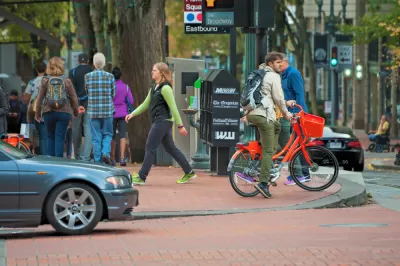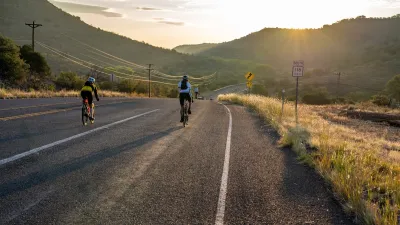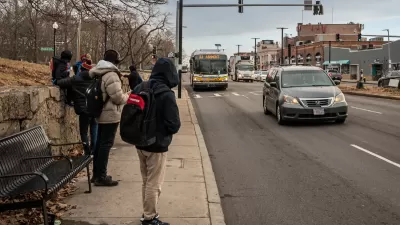Experts at the Urbanism Next conference advise city leaders not to overlook basic, "mundane" infrastructure that underpins the success of cities and transportation systems.

Rather than looking to flashy, high-tech transportation projects, writes Skip Descant in GovTech, urbanists have another recommendation for cities: "fix the sidewalks."
At the recent Urbanism Next conference, experts in the field cautioned against focusing on new technologies to the exclusion of basic infrastructure fixes and much-needed maintenance. "Getting the basics right is a necessary precondition for actually having the technologies work, in the sense of having people use them consistently," argued David Zipper, a visiting fellow at the Harvard Kennedy School's Taubman Center for State and Local Government. "Well-maintained sidewalks that connect to other transportation systems, he argued, could rise to high priority for any number of reasons — like improving safety for pedestrians or reducing car trips." A better sidewalk can encourage more people to use any number of high-tech mobility devices. "The moonshot mobility tech solutions that we think about — especially the shared ones — they really rely on cities first getting the basics right."
Zipper is not advocating a "retreat from technology." Rather, he asserts that "cities should more enthusiastically embrace the use of pilot projects as a way to test ideas against their ability to truly achieve some of those high-level goals, and rethink the project when it doesn’t."
FULL STORY: In the COVID Recovery, Don’t Overlook ‘Mundane Mobility’

Maui's Vacation Rental Debate Turns Ugly
Verbal attacks, misinformation campaigns and fistfights plague a high-stakes debate to convert thousands of vacation rentals into long-term housing.

Planetizen Federal Action Tracker
A weekly monitor of how Trump’s orders and actions are impacting planners and planning in America.

San Francisco Suspends Traffic Calming Amidst Record Deaths
Citing “a challenging fiscal landscape,” the city will cease the program on the heels of 42 traffic deaths, including 24 pedestrians.

Defunct Pittsburgh Power Plant to Become Residential Tower
A decommissioned steam heat plant will be redeveloped into almost 100 affordable housing units.

Trump Prompts Restructuring of Transportation Research Board in “Unprecedented Overreach”
The TRB has eliminated more than half of its committees including those focused on climate, equity, and cities.

Amtrak Rolls Out New Orleans to Alabama “Mardi Gras” Train
The new service will operate morning and evening departures between Mobile and New Orleans.
Urban Design for Planners 1: Software Tools
This six-course series explores essential urban design concepts using open source software and equips planners with the tools they need to participate fully in the urban design process.
Planning for Universal Design
Learn the tools for implementing Universal Design in planning regulations.
Heyer Gruel & Associates PA
JM Goldson LLC
Custer County Colorado
City of Camden Redevelopment Agency
City of Astoria
Transportation Research & Education Center (TREC) at Portland State University
Jefferson Parish Government
Camden Redevelopment Agency
City of Claremont





























